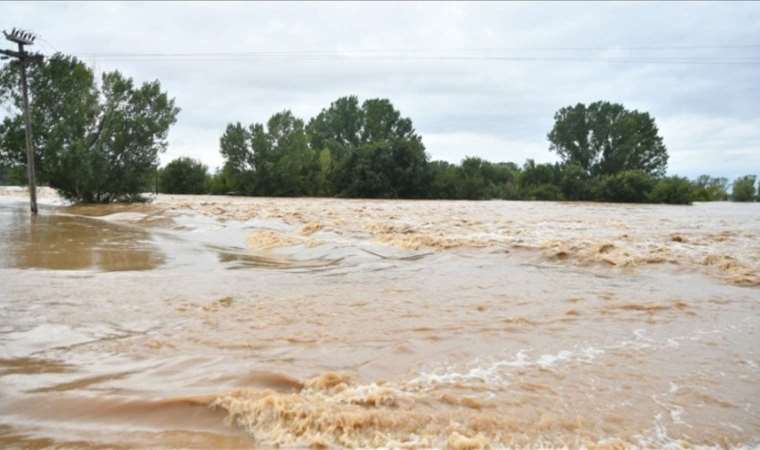Climate change exacerbates heavy rain-caused impacts in Mediterranean
Rainfall in 1st half of September kills at least 4 people in Bulgaria, 6 in Spain, 7 in Turkey and 17 in Greece

Climate change-exacerbated rainfall in early September brought widespread impacts to the Mediterranean region, according to a report released Tuesday.
The study was released by the World Weather Attribution (WWA) initiative and prepared by researchers from Greece, the US, the Netherlands, Germany and the UK to assess to what extent human-induced climate change changed the likelihood and intensity of the heavy rains that led to the flooding.
Evaluating the heavy rains and floods in several countries across the Mediterranean during the first two weeks of September, the report noted that these extreme events were caused by low-pressure systems forming around a blocking high centered over the Netherlands.
"On the 3rd of September, torrential rain fell within a few hours in Spain, followed by very heavy rain and floods caused by the low-pressure system Daniel in Greece and Bulgaria between the 4th and the 7th of September, and devastating floods in Libya after very extreme rainfall during the 10th," it said.
It said the powerful rainfall caused devastating flooding that not only submerged settlements and left thousands homeless but also killed at least four people in Bulgaria, six in Spain, seven in Turkey and 17 in Greece.
"Further, 3,958 casualties have been confirmed in the Libyan city of Derna alone and an additional 170 fatalities elsewhere in the country, while more than 10,000 people are still missing after two major dams broke," it added.
According to the findings, the study said the severe flooding in Spain, Greece, Turkey, Bulgaria and Libya was caused by very heavy rains that fell, in the case of Spain in less than 24 hours, whereas it lasted 24 hours in Libya and up to four days over Greece and Turkey.
"We state that the return time for the event in Spain is a 1-in-10 to 1-in-40 year event; for central Greece a 1-in-80 to 1-in-250 year event....and over Libya a 1-in-300 to 1-in-600 year event," added the report.
It said that human-induced climate change made an event as extreme as the ones observed up to 10 times more likely and up to 40% more intense for the larger region including Greece and parts of Bulgaria and Turkey.
Meanwhile, an event as extreme as the one observed over Libya has become "up to 50 times more likely" and "up to 50% more intense" compared to a 1.2C cooler climate.
The report also noted that the ongoing conflict and state fragility in Libya increased the effects of the flooding and limits nationwide adaptation planning and coordination across a range of climate issues.

